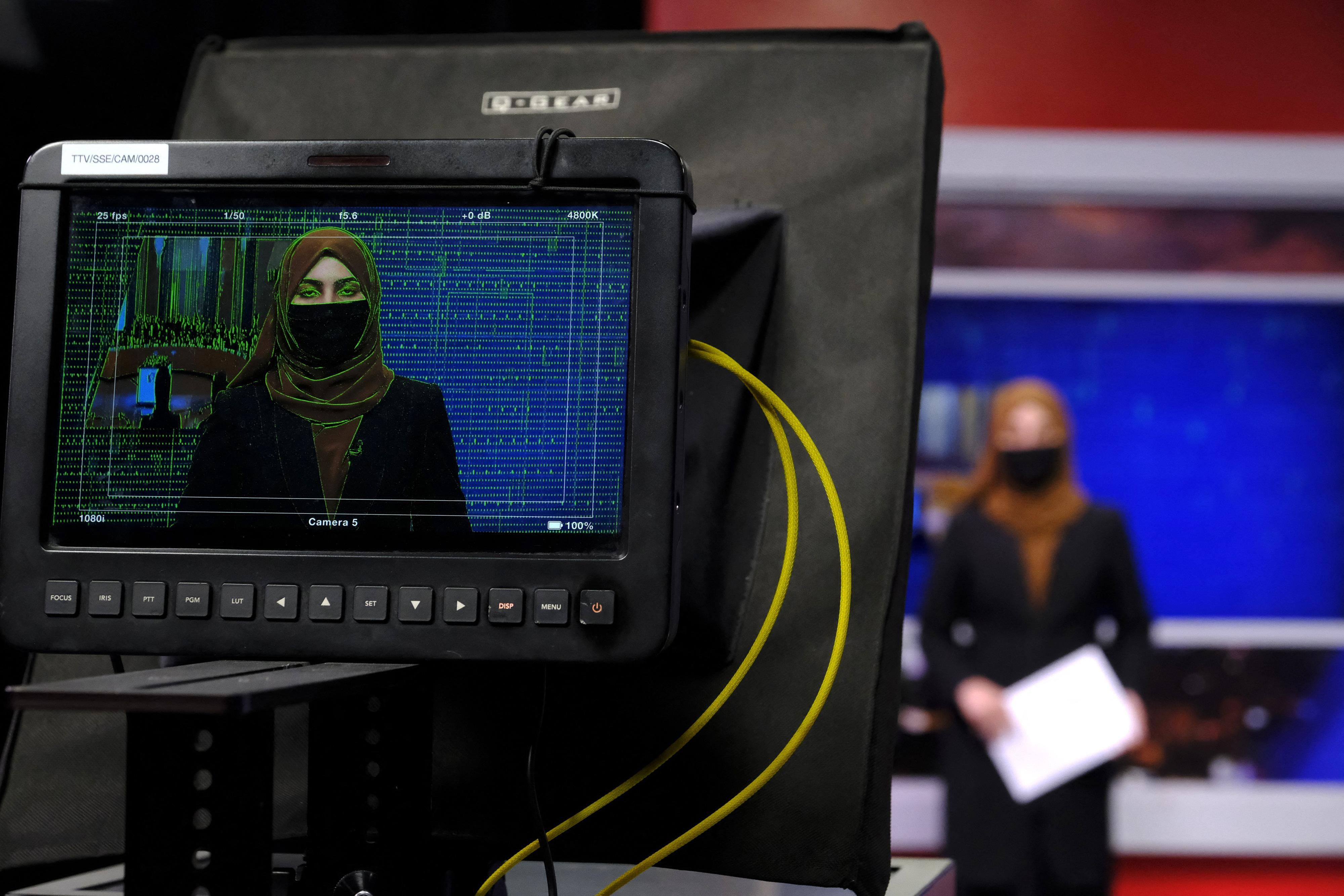Afghanistan’s media landscape has been transformed in year one of the Taliban’s return to power.
The country’s once-vibrant media scene was a crucial pillar of civil society during the two decades of US occupation, part of Washington’s nation-building efforts. But after the American withdrawal, and under the regulations and coercion of the Taliban, Afghan journalism is struggling — as is the health of transparency and accountability in the nation.
Still, the state of the Afghan free media may be down, but not out.
The numbers are staggering. According to a new survey, over the past year Afghans have lost 40 percent of their media. Of 547 media outlets, 219 have stopped reporting or been forced to shut down. About 60% of journalists are now unemployed, and entire “news deserts” have been created, with zero media in 11 of Afghanistan’s 34 provinces.
The reasons for the hemorrhaging are both political and economic.
On the one hand, the Taliban have issued a series of edicts limiting what the media can report on. What’s more, the regime’s dreaded intelligence arm has taken over from the Ministry of Information. Taliban spooks have begun “regulating” media directly by coercing, persecuting, and prosecuting journalists.
On the other hand, the fact that Afghanistan is near universal poverty certainly doesn’t help. The economy is in a freefall and foreign funding has dried up, as has advertising revenue after the Taliban prohibited broadcasting popular music and entertainment programs.
Fear + violence = censorship. Even before the Taliban takeover, Afghanistan was ranked as one of the world’s most dangerous places for journalists. Although no reporter has been killed by the regime since Aug. 2021, hundreds of instances of arbitrary arrest, detention, ill treatment, and threats have been documented. This has beset a culture of censorship as well as self-censorship.
Khpolwak Sapai, director of privately-owned Tolo News in Kabul, was briefly arrested along with some of his colleagues for explaining to audiences why Tolo was no longer airing certain programs. He insists that his organization continues to carry critical reports, but that he and his reporters must be “focused, attentive, and extra careful to avoid giving them [the Taliban] any excuse for prosecution.”
New blanket editorial directives from the Taliban — to not take a stand against Islam or “national values” — seem simple enough, but can easily be twisted by authorities to kill any story. And certain information is simply off-limits.
“It’s difficult to get access to information. Security incidents are not permitted. Protests are not permitted.” Sapai explains. “Although this information may be circulating on people’s phones, we aren’t allowed to report it.”
Triggering the Taliban. Sami Yousafzai, a three-decade veteran of the BBC, Newsweek, and CBS, was recently forced to drop a story because his foreign colleagues were in Afghanistan at the time. Restrictions are getting tighter by the day, and are likely to affect international media as well.
“In the last 20 years, the freedom of Afghan media was a ray of hope compared to the state of media in the neighborhood,” says Yousafzai, referring to Iran and the Central Asian ‘Stans.
Now, he adds, “certain stories … will trigger the Taliban to come after you immediately,” he says.
But there’s a silver(ish) lining. Media isn’t totally banned. Sure, the Taliban are just a fatwa away from issuing a blanket ban, but they haven’t, yet. For Sapai, that shows the regime is not a monolith when it comes to dealing with journalists.
“Some officials want free media to exist, but there are some inconsolable Taliban who don’t see the need,” he says. This includes many senior officials who are not interested in speaking to reporters, who in their view should only be talking to official spokesmen.
It’s also a matter of “prestige.” The Taliban’s ongoing talks with the US to unfreeze Afghan government funds held by American banks compel the regime to not totally roll back all liberties enjoyed by Afghans.
But compared to a year ago, when the Taliban took over, Sapai is clear: “Things were better in the beginning than they are now.”
Women journalists, obviously, have been the hardest hit by Afghanistan’s media crisis. Three out of four women in media have lost their jobs, and over 80% of those still employed are in Kabul. Women have been banned from state-run media, while those in the private sector can only appear on screen if their faces are veiled.
In the remote mountains of eastern Afghanistan, Salma Niazi, a 24-year-old former Tolo news presenter, hasn’t lost hope. When she reported to work at Hela Radio last August, she was turned away at the door because women were no longer allowed to work.
Niazi and her husband, Saeedullah Safi, then decided to co-found The Afghan Times, an online Pashto publication. They are getting help from four other female reporters, but need the freedom to report. Writing anything against the Taliban is too dangerous.
“We chose journalism out of love,” the couple says. “But after the arrival of the Taliban, everything has become so difficult for us that our hatred arises.”
If things continue like this, they fear they will be forced to find another job.
